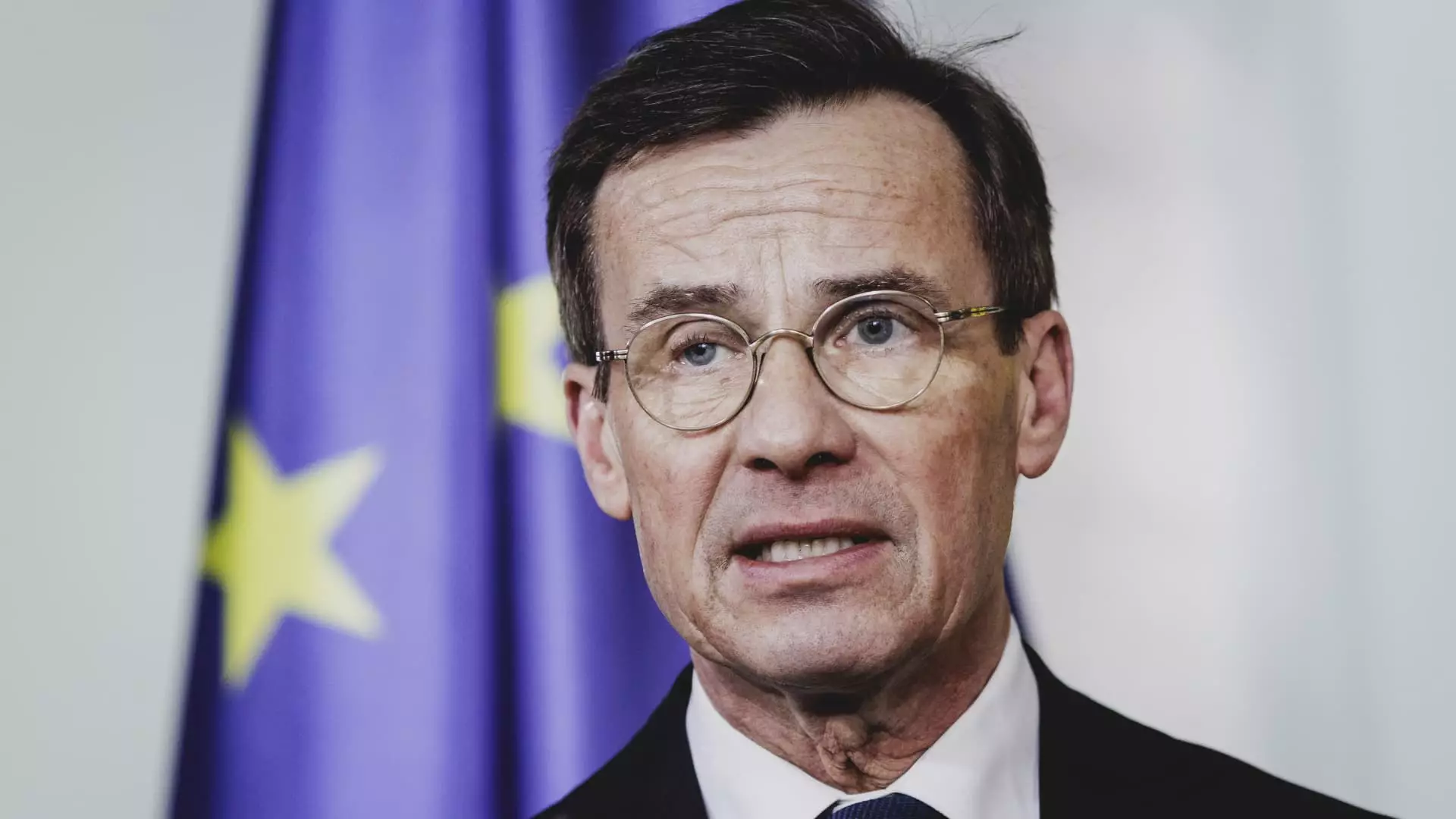In recent discussions surrounding the innovation landscape, European leaders are increasingly vocal about the dangers of strict regulations on artificial intelligence (AI) technologies. With Sweden’s Prime Minister Ulf Kristersson issuing a stark warning that Europe may become a “museum” if it does not adapt its regulatory approach, the urgency for change is more palpable than ever. Kristersson’s comments were made during the Techarena event in Stockholm, where he expressed concern over Europe’s economic competitiveness compared to the swiftly advancing technological arenas of the United States and China.
Kristersson’s insights resonate with a growing sentiment among European policymakers: the need to facilitate growth rather than hinder it through stringent regulations. He highlighted the difference in economic trajectories over the last two decades, indicating that while the U.S. and China have leveraged technological advancements to boost their economies, Europe risks lagging behind. The comparison between Europe’s stagnation and the other continents’ growth serves as a rallying cry, galvanizing leaders like French President Emmanuel Macron, who recently unveiled a substantial 109 billion euro investment aimed at revitalizing the AI sector in France, supported by both domestic and international investment.
As Europe grapples with its economic identity in the face of a tech revolution, the response must be multifaceted. Kristersson, echoing Macron, noted that to compete effectively on the global stage, Europe must embrace a culture of innovation that nurtures talent and capital rather than stifling it with bureaucratic impediments. This approach signifies a departure from the historic tendency to prioritize regulation over progress.
One of the most significant developments in European AI regulation is the landmark AI Act, which was designed to provide comprehensive oversight aimed at mitigating risks associated with AI technologies. While the intention behind this legislation is commendable, critics point out that the act may have unintended consequences, potentially discouraging investment and innovation. The act’s stringent measures have faced backlash from major tech figures who argue that it prioritizes safety at the expense of growth opportunities, thereby inhibiting Europe’s ability to develop disruptive technologies that thrive in less regulated environments.
Despite the good intentions behind the AI Act, the reality is that overly cautious regulatory frameworks could turn Europe into a challenging environment for startups and established companies alike. As highlighted by U.S. Vice President JD Vance during the Paris AI Action Summit, there is a pressing need for international regulatory regimes that can incentivize AI technology development rather than restrict it. Embracing a more lenient approach may foster a spirit of collaboration and innovation, allowing European firms to thrive in a competitive global marketplace.
The overarching narrative among European leaders is that cultivating an optimistic outlook toward technological advancement is crucial. A shift from fear-based regulations to an encouraging framework for AI development could create an ecosystem where innovation flourishes. Kristersson emphasized that the current climate is stifling for many businesses, with companies hesitating to invest in cutting-edge technologies due to uncertainties surrounding European legislation. This reluctance is further exacerbated by talent and capital migration to jurisdictions with more favorable conditions for AI innovation.
The call for less regulation and more investment in talent reflects a pivotal moment for Europe. As global competition intensifies, the region must take proactive measures to enhance its attractiveness as a destination for AI enterprises. Encouragingly, both government initiatives and private sector commitments are starting to align, with substantial funding directed toward AI development in various European nations.
As discussions about the future of AI in Europe evolve, the question remains: can the continent realign its strategy to foster an environment conducive to innovation? The impending debate over AI regulation will not only shape the trajectory of European economies but will also serve as a crucial test of the region’s ability to adapt to new technological realities. Collaborative efforts among government entities, businesses, and academia will be essential to creating a balanced regulatory framework that not only safeguards against risks but also promotes sustainable growth.
The challenge for Europe lies in reconciling its commitment to safety with the pressing need to innovate. Prime Minister Kristersson’s call to action, alongside the investments promised by other European leaders, underscores the urgency required to navigate this delicate landscape. If Europe hopes to maintain relevance in the global technology race, fostering an ecosystem where companies can thrive will be pivotal. The road ahead will undoubtedly require navigating complex regulatory waters, but with a clear vision and collaborative spirit, Europe can transcend its current stagnation and avoid the fate of becoming a technological relic.

